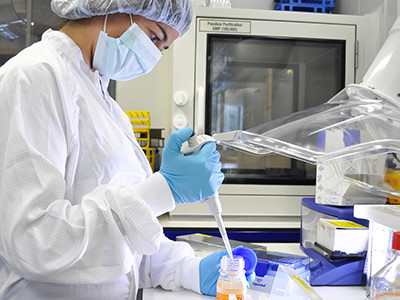Ubiquinol is the active, antioxidant form of CoQ10—a nutrient involved in the mitochondrial production of ATP, the body’s cellular energy currency. It also helps shield cells from oxidative stress, supporting heart, brain, and overall metabolic function.
As we age, or when health declines, our ability to convert CoQ10 into ubiquinol diminishes. That’s why direct ubiquinol supplementation is often recommended for older adults or those managing cardiovascular concerns. However, it only works if the product contains the real thing.
Here’s where Kaneka steps in. Using a proprietary fermentation process developed by Kaneka Corporation, their ubiquinol is bioidentical to what the human body produces. Unlike many synthetic or semi-synthetic forms on the market, it’s free from the contaminants and structural inconsistencies that can affect performance or safety.
This commitment to purity is supported by more than a decade of clinical trials and research. It’s not marketing spin—it’s a scientific foundation, and one that Kaneka is fiercely protective of.

The Growing Threat of Counterfeit Products
Despite the science, not all brands uphold the same standards. Kaneka has observed a surge in products that misuse the term “ubiquinol” to capitalise on consumer interest, while failing to deliver the correct compound—or any at all.
Some contain oxidised CoQ10 instead, which the body must convert to ubiquinol. Others make vague or misleading label claims, often without independent verification. A few are outright counterfeit, passing off synthetic ingredients with no clinical backing.
For consumers, this poses real risks. These substandard products can lead to poor results, erode confidence in supplementation, and, in some cases, affect health—particularly among individuals relying on ubiquinol for medical reasons.
In response, Kaneka has launched a comprehensive programme of market surveillance and laboratory testing in collaboration with accredited third-party labs and its parent company. The goal? To verify what’s in these products—and to hold brands accountable when their claims don’t match the contents.
According to Terese Mansell, Vice President of Kaneka Nutrients, “By exposing products that misrepresent their contents, we aim to prevent misleading claims that undermine trust, devalue authentic ubiquinol products, and compromise health outcomes.”
Market Surveillance and Legal Action: Raising the Bar
This isn’t simply about internal audits or quiet corrections. Kaneka’s approach is assertive, with a clear strategy that includes independent product testing, public disclosure of fraudulent items, and legal action where necessary.
This level of oversight is still rare in the supplement industry, which is often criticised for inconsistent regulation. By stepping up, Kaneka isn’t just protecting its brand—it’s creating a model of accountability that others may follow.
The implications are significant. Industry stakeholders—from manufacturers to retailers—are being put on notice: if you’re making ubiquinol claims, you need to back them up with verifiable science and sourcing. Otherwise, you may find yourself under scrutiny.
For consumers, this initiative sends a powerful message: you have allies who are working to ensure that what’s on the label reflects what’s in the bottle.

Helping Consumers Choose Wisely
Kaneka’s campaign also empowers consumers to take charge of their own supplement choices. One of the clearest ways to identify genuine ubiquinol is to look for the Kaneka Quality Seal on the product packaging.
This seal isn’t just a badge—it signifies that the supplement contains the same ubiquinol used in scientific studies and manufactured using Kaneka’s proprietary process. It’s a guarantee of purity, efficacy, and integrity.
Brands that use Kaneka Ubiquinol® typically disclose their source and provide transparent documentation. Shoppers should also be wary of products that don’t specify the form of CoQ10, or that include exaggerated marketing language without clinical references. A bit of label literacy can go a long way.
While Kaneka continues its vigilance behind the scenes, consumer awareness is a crucial part of the solution.
Preserving Trust in Wellness
At a time when trust in health products is increasingly fragile, Kaneka’s efforts couldn’t be more important. The ubiquinol market is just one segment of a much larger wellness industry—but it’s a bellwether. If standards are allowed to slide here, it sends a dangerous message across the board.
By taking a proactive stance, Kaneka Nutrients is not just safeguarding a product. They are preserving a principle: that health claims must be earned, not assumed. Their work reminds us that good science is good business—and that consumers deserve nothing less than full transparency.
As the supplement market continues to grow, initiatives like this will be essential to maintaining both quality and credibility. Kaneka’s leadership is setting a bar others would do well to reach for.









